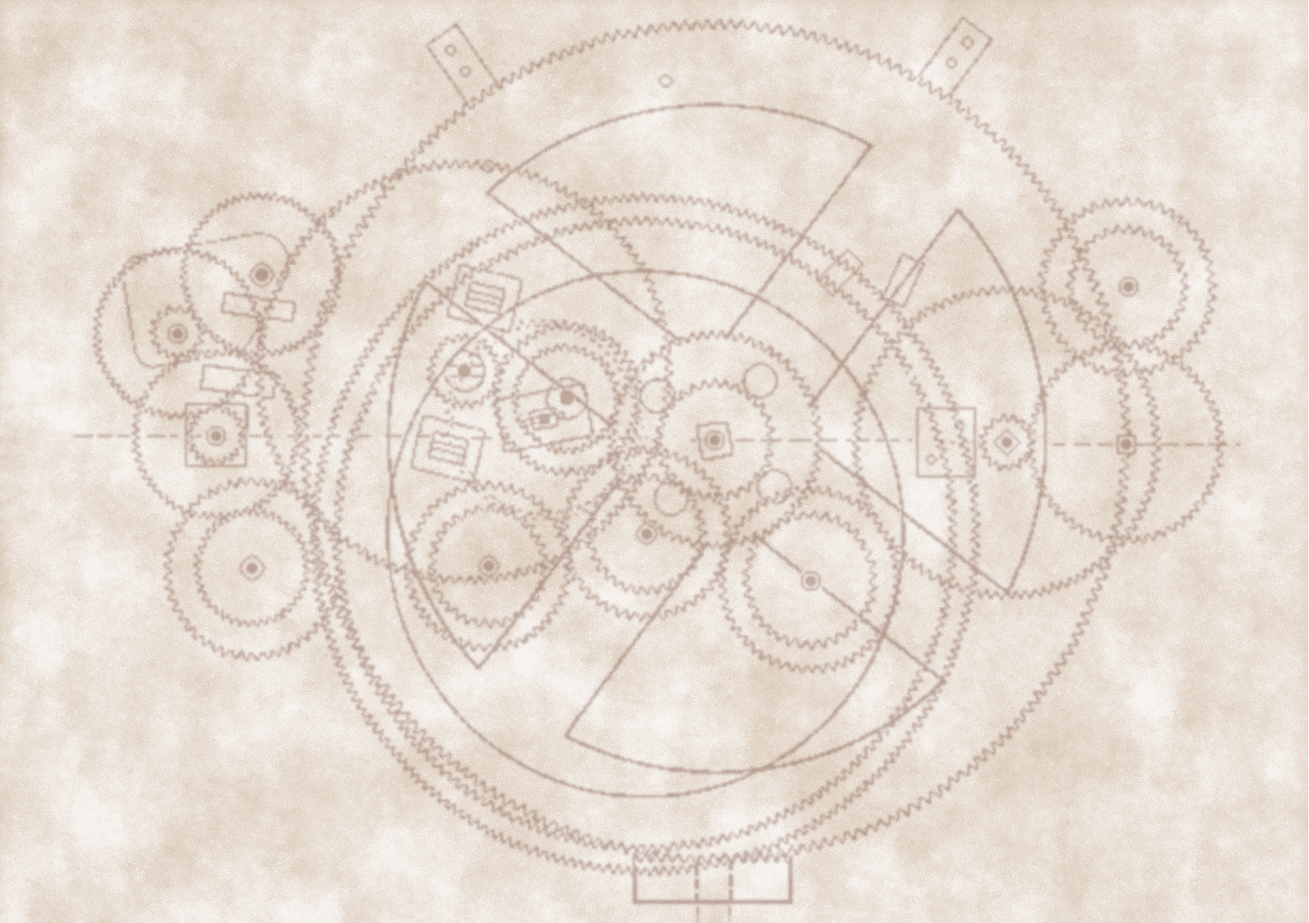The Numbers CONCLUSION
March, 2024

LOST
The Secret behind the Numbers in LOST — 4 8 15 16 23 42 — is that they are not really numbers after all. They don't indicate quantities. They represent "Candidates" for the next Guardian of the Island. These candidates are the characters we have been following through all six seasons. There is a connection between candidates and characters.
I Wasted Months Chasing Prime Numbers So You Don't Have To
I didn't win $1 Million, and there isn't a CIA bullet with my name on it either. I did not run out of enthusiasm for the Prime Number Quest but rather came to several realizations about the nature of numbers. Numbers help define the Boundaries of Objectivity.

If you just skimmed through Part One through Five, this Conclusion will have less meaning than if you followed the examples. I tried to present it in the least mathy way I could. But ultimately it's about numbers. In the 17th Century, you could probably spend your professional life generating every verified prime number from 1 to 1 million. My wheel program does it in 27 seconds.
Generating every prime candidate is easy. Make a list of every odd number; the primes will all be in there. But separating genuine primes from the composites is where all the work is. Each candidate has to be checked that it isn't divisible by a number that came before it. So you want to generate as few candidates as possible, without missing any of the actual primes.
With computers, programming, and algorithms you can achieve mastery over numbers of reasonable size. As the numbers get larger, the task grows faster than anticipated. Let's compare the work of separating primes from composites for a series of 1,000 numbers. We will play dumb and use a 2 Slice Wheel. So at least we filter the even numbers. It makes the example easier:
- For the first 1,000 numbers, we will generate 500 candidates.
- For the first 1,000 numbers, 168 will be Prime.
- Each candidate will have to be checked against the primes before it.
- The largest candidate will have to be checked against the 168 primes before it.
We are being simple, not efficient; but consistent, and honest for this example. We would want to use a larger wheel and we only have to check primes up to the square root. But let's just take the same task starting at 3 trillion:
- At 3 trillion, for the next 1,000 numbers, we will generate 500 candidates (exactly the same).
- At 3 trillion, in the next 1,000 numbers, only 29 will be Prime (83% fewer).
- Each of the 500 candidates will have to be checked against 104,421,800,306 primes before it.
Googol is Not a Search Engine
A Googol is a number with 100 zeros after the one. It's also represented as 1x10100. A Trillion is a number with 12 zeros after the one. It's also represented as 1x1012. (We were just choking on the prime verification workload at 3x1012.)
Here is 1x1012 laid out: 1,000,000,000,000. Here is 1x10100 laid out: 10,000,000,000,000,000,000,000,000,000,000,000,000,000,000,000,000,000,000,000,000,000,000,000,000,000,000,000,000,000,000,000,000,000.
An early contest for finding Prime numbers was the RSA Factoring Challenge: For each RSA number n, there exists prime numbers p and q such that n = p x q. The problem is to find these two primes, given only n.
This challenge should seem super familiar at this point. The smallest of the challenge numbers was RSA-100 which was 100 digits (like Googol above). I'm not sure how, but someone factored it into two 50-digit primes in "7 MIPs Years." MIPs is a million instructions per second, and a MIPS year is the amount of computation performed by a computer operating at 1 MIPs over the course of a year.
If you wanted to make the challenge harder, you would introduce RSA-101. Because adding 1 zero creates a number 10 times larger. But instead, we have RSA-500. "Ha Ha, choke on this!" And no one solved it, and the RSA Challenge has since been cancelled.
Arithmetic Works Because it is Counting
Even before we learn to count, we can engage in sorting. "One for me, One for You..." A bit later comes counting. If I have a pile of 8 legos and another pile of 5 legos, I can combine them and recount to find 13 legos. In school, we learn a TRICK, involving SYMBOL MEMORIZATION. By memorizing 8+5=13, we work with symbols that represent the quantities, and we don't have to recount quantities all the time. Remember how much work you put into memorizing your "Times Tables." If you find yourself doing "finger math" sometimes, you will grasp the relationship between symbol manipulation and a fallback to counting. Addition is counting, Subtraction is counting; Multiplication, and Division are too. We memorize symbols and rules for manipulating symbols. Counting is done with the "Natural Numbers."
Here is an interesting transition: If I place a small handful of peanuts in front of you and ask, "How many?" You will quickly count them and respond correctly with a number, perhaps 7. If I ask "What is 3 trillion plus 4 trillion?" You will also answer 7 (trillion), but not because you counted anything. Likewise, if I quiz you, "What is 1,000,000,003,000 + 1,000,000,004,000," you should correctly answer "2,000,000,007,000."
Here, no counting has taken place.
It would be infeasible to first count to one trillion, three thousand, and then continue for another one trillion, four thousand to arrive at the final answer.
Numerals versus Numbers
You can answer these "large number addition" questions so quickly because you are not treating them as NUMBERS. You are treating them as STRINGS. If I added another 3 zeros, the problem would not be 1,000 times harder. The difficulty would seem almost the same.
Instead of Counting Numbers, you are processing Strings of Numerals. You are utilizing your initial Symbol Memorizations, like 3+4=7. For the longer strings you add on the "Carry Rule" and the "Borrow Rule" for problems like 100,180 + 100,050 = 200,230 (8+5, carry the 1). With single numeral memorization and a few rules, you can process really long strings that represent unrealistically large numbers almost instantly.
Prime Numbers are Always Numbers
This is both the problem and potential solution to the Prime Number Mystery. For Arithmetic operations on long strings of numerals, you process the individual digits anywhere in the string placement the same way. 1x1012 represents a brief exercise in manipulating 13 numerals, not an eight-thousand-year counting journey.
If we could determine string manipulation rules around prime numbers, crazy long numeral sequences like RSA-500 would no longer be a problem. There are tantalizing examples of how this might work, like "Is this 1x10500 number Odd or Even?" By merely looking at the last character you can answer that correctly.
You can answer "Is this 1x10500 Prime?" instantly, but only when the answer is "No". Because if the last digit is 0, 2, 4, 5, 6, or 8; then "No" is the correct answer. Not Prime. Otherwise, we will need to discover the string manipulation rules for "Yes."
The last option would be to engineer something like a Prime Wheel, that produces every Prime number, but zero Composite numbers. There would be no Candidates requiring validation over an exponentially growing time frame. Instead of a simple Prime Wheel, though, I suspect it would require something more complex, like a Prime Clock.

The other articles in Boundaries of Objectivity will explore this further. You can leave thoughtful comments or questions at the link below.